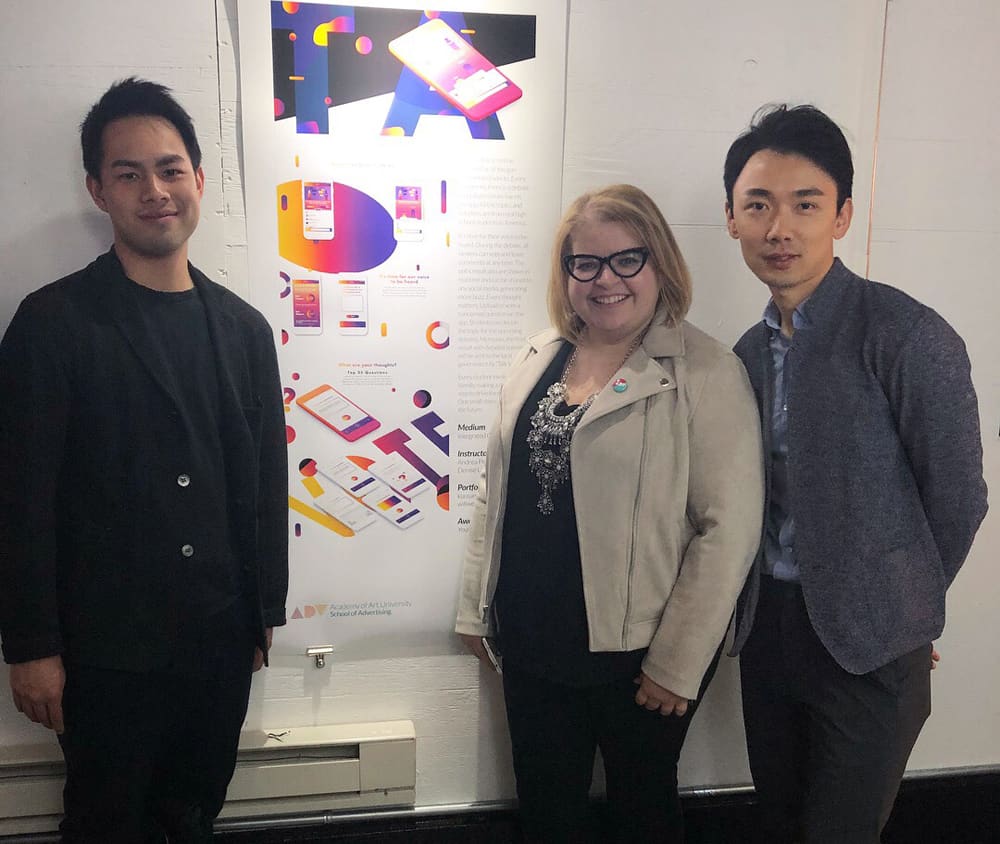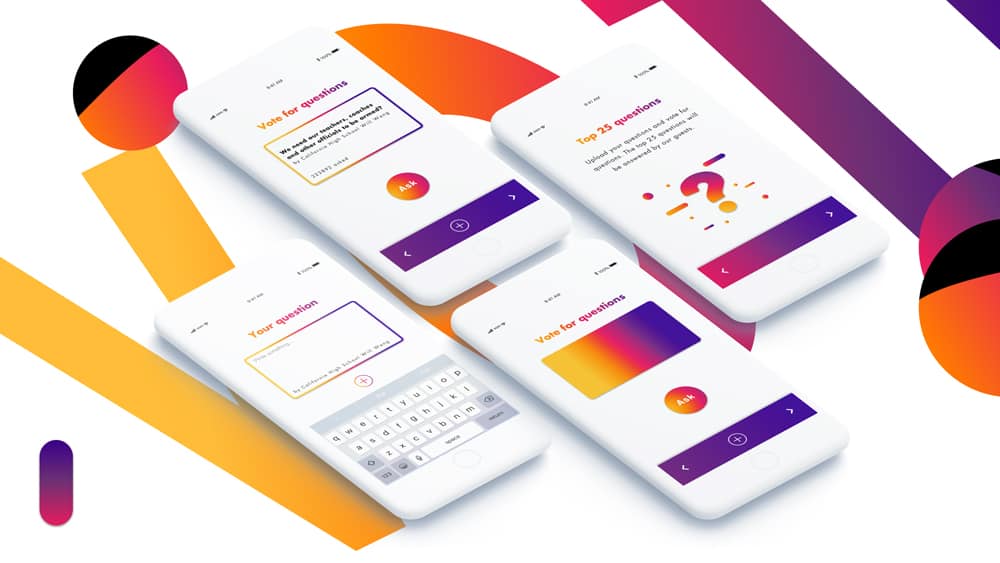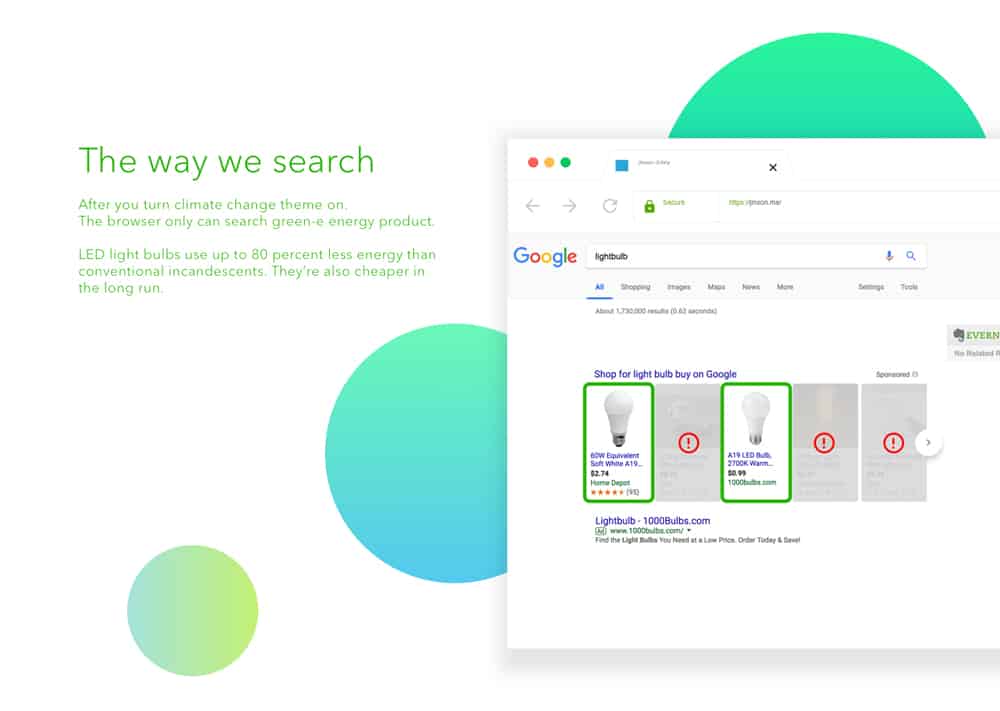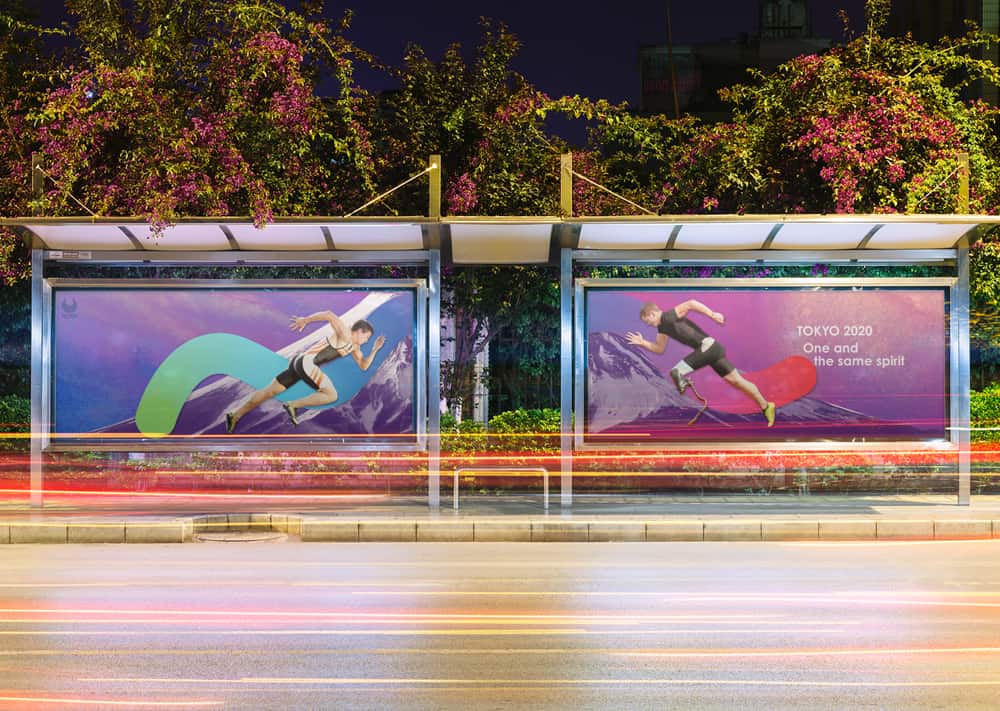Consistently executing memorable concepts is the key to success in the creative world. School of Advertising alumni Hsiu Chi (Sam) Kuo and Wei (Will) Wang recently proved their ability to master conceptual messaging by placing second overall in the student bracket of the global Young Glory advertising competition.
Young Glory is a unique, independently run worldwide competition that rewards creative consistency. Each month for eight months, entrants are invited to provide a creative brief to showcase their talents. Eight judges, all major players in the advertising industry, evaluate the briefs. In the end, winners are invited to present their ideas in front of 6000-plus people at C2 Montreal, a worldwide conference celebrating creativity.
Kuo and Wang, both 2018 MA graduates in Advertising, were winners for three briefs. Their winning topics were gun control, climate change and the 2020 Tokyo Paralympics.
Wang primarily led campaign strategy and Kuo handled design. Well-traveled international students, the pair emphasize the importance of considering target audience culture, while also incorporating forward-thinking technology to capture a younger cohort.
“The competition doesn’t want you to limit your ideas,” says Wang. “They just gave us a theme, and you can approach this as many ways as you want. I wanted to relate [the themes] to reality.”
For example, their gun control campaign, titled “Talk to Us” (which also won gold honors in the Academy’s 2018 Spring Show), was a concept for an online platform encouraging gun control debates for concerned students. Their statements would be aggregated into raw data portraying the views and opinions of the platform’s users.
Kuo says research for this brief started at a protest in downtown San Francisco. “We had to use the U.S. citizen perspective for this project,” Kuo recalls. “It was harder because we aren’t from here—guns are viewed totally differently in Asia.”

To gain a full grasp of the U.S. gun control issue, Kuo and Wang turned to Advertising and Interaction & UI/UX Design Co-director Andrea Pimantel. “They showed a lot of maturity in how they approached that problem,” she says. “Being aware of the world, how people think and [the nature of] pop culture is really important in advertising.”

For their climate change brief, the pair created an integrated phone app that notifies users on ways to save energy, purchase green products and reduce carbon footprint.

The 2020 Tokyo Paralympics campaign presented Special Olympics athletes and abled Olympic athletes as equals, using color elements across print posters and an interactive screen to signify their shared competitive spirit. Masashi Kawamura, a well-known designer who judged the Paralympic entries, brought Kuo on as an intern at Kawamura’s agency, Party (NYC), shortly after Kuo and Wang won for this brief.

Traditional advertising, says Kuo, is a “one-way message.” Social media, he observes, is two-way. In the latter, “you can talk to a brand and a brand can talk back to you.”
With that in mind, the duo’s end game was to develop more interactive advertising to create memorable encounters. “You can view it, you can feel the experience,” Kuo says. “This is the future we’re really focused on creating.”
According to Brendan Graham, a Young Glory representative, attention to detail set Kuo and Wang’s entries above the rest. “It was clear that a lot of effort and talent was on display,” he says. “They thought about how their ideas would come to life across many mediums and really demonstrated that [their ideas] can live in a big way.”
Commenting along the same lines, the Academy’s Pimantel says, “They both brought a lot of skills to the table. Sam is a really strong art director and designer, really good conceptually. Will…brought a lot of strategy, bringing background to it, a deep understanding…. It’s been a dream to see them come together in this way.”
Wang sums up the experience: “This competition will afford you opportunities beyond the campus. If you focus only on your classes and assignments in school, you will gain very little [experience]. If you do competitions, I think that’ll give you different perspectives on how real agencies work and how you can visualize yourself in the industry.”
Photos courtesy of Hsiu Chi Kuo and Wei Wang
Article by Nina Tabios, a publications staff reporter for Academy Art U News